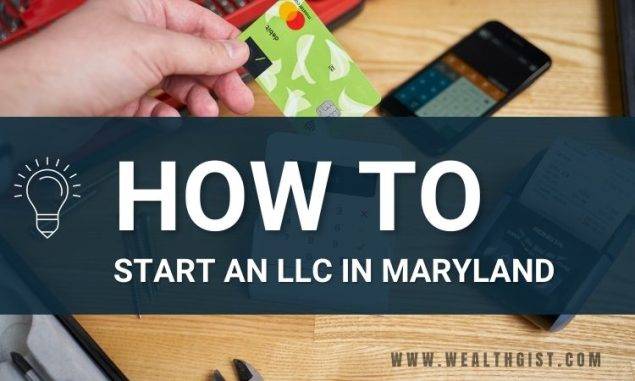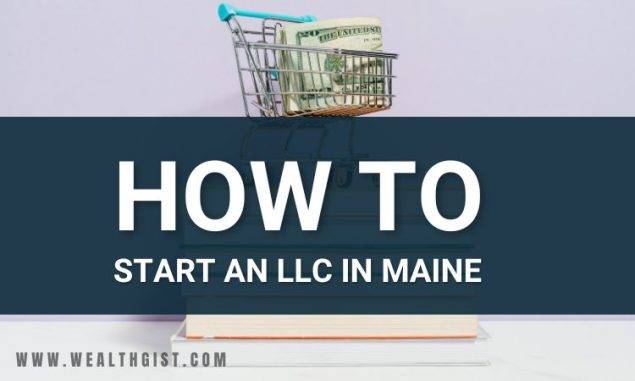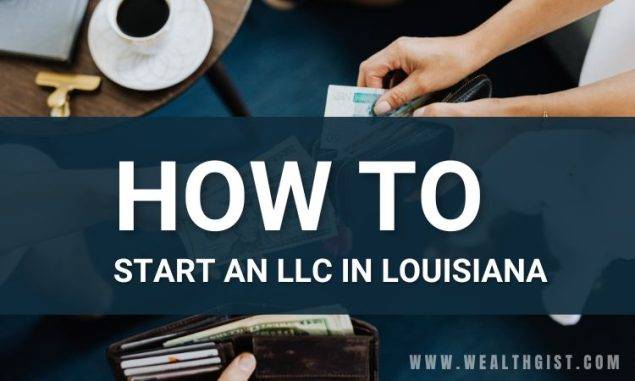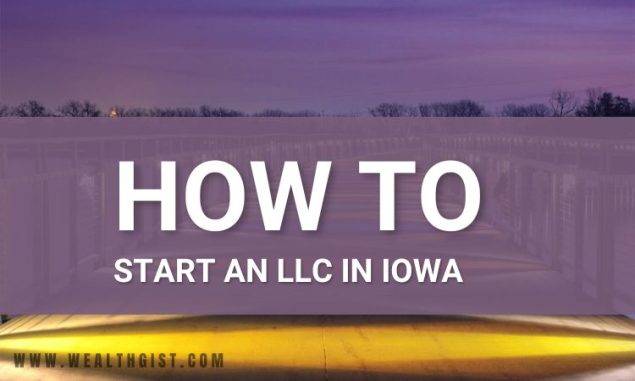An LLC formation checklist is a list of things that need to be completed when forming a limited liability company (LLC).
A limited liability company delivers limited liability protection and tax options for small businesses.
To make starting a limited liability company (LLC) easy for you, we have created a list of make LLC formation checklists.
This LLC business formation checklist covers the necessary steps you need to take when forming your new limited liability company.
What is an LLC
An LLC (Limited Liability Company) is a type of company in the United States that allows its owners to limit their personal liability for any debts incurred by the company. It also provides protection against lawsuits filed by third parties.
How to Form an LLC
You have to consider and work towards this To-do list when forming an LLC
Below, you will find the tasks you must complete as you plan to set up your LLC business.
When starting a limited liability company, you need to:
- Create A Business Plan
- Choose a business name
- Get a registered agent
- Submit Your Articles of Organization
- Create an operating agreement
- Get an Employer Identification Number
Create A Business Plan
The first thing to do on the LLC formation checklist is create a business plan.
This is because the business plan will explain your vision and mission for the company.
It will also state the purpose and the values you want it to uphold.
Choose Your Business Name and Structure
Choosing a business name is an essential step on the LLC formation checklist.
There are four different types of businesses when it comes to legal structure, which include:
- Sole proprietorship
- Partnership
- Limited liability company (LLC)
- Corporation (C-corp or S-corp)
You need to be sure of the business structure you are forming.
Then you can now move to choose a suitable name for your business.
However, there are several things to remember when naming your business.
When choosing a name for your business, you need to:
- Consider a name that is easy to market: Short, descriptive, memorable, and easy to pronounce names should be your first goal.
- More so, your customers can easily figure out what your business does when they see the name.
- Make your name distinguishable from other registered business names.
- Consider getting a “Doing Business As” (DBA) to allow the business to operate under a different name than the legally registered one.
- Make sure your business name is not already available as a web domain.
Get Registered Agent
Starting a limited liability company in most states requires LLCs to have a registered agent. A registered agent is a business entity that accepts tax and legal documents on behalf of your business.
However, they are known as resident agents, statutory agents, or agents for service of process.
The business owner or other individual can be the registered agent if they meet the requirements below.
A registered agent must:
- Be 18 years or older
- Have a physical address in the same state where the business is formed.
Be available during regular business hours.
However, it is advisable to hire a registered agent service because they comply with the law, you have peace of mind, they are flexible to use, and you have business privacy.
Submit Your Articles of Organization
The Articles of Organization is the LLC formation checklist that must be filed with the state.
In some states, it is also called a Certificate of Formation or Certificate of Organization.
This document contains some of the basic information about the company, which includes the address, registered agent, if it is member-managed or manager-managed, and its owners.
Different forms are available in states that can be filled online or by email, depending on the state.
Create an Operating Agreement
An operating agreement is a legal document that summarises the ownership and member duties of your LLC.
Most states legally require LLCs to have an operating agreement, which is optional in other states.
However, it is highly recommended for your LLC business to have one even if it is not required.
This is because it can help prevent or resolve disputes between LLC owners.
It can also bring the company credibility and ensure courts uphold its limited liability status.
Operating Agreement Checklist
Operating agreements usually have six main sections to be fulfiled, which are:
- Organization
- Management and Voting
- Capital Contributions
- Distributions
- Membership Changes
- Dissolution
Get Your Employer’s Identification Number
An Employer Identification Number (EIN) is more like a Social Security number (SSN) for your limited liability company.
However, it is sometimes called a Federal Employer Identification Number (FEIN) or Federal Tax Identification Number (FTIN).
EIN is necessary if your business:
- Has employees
- Is a multi-member LLC
- Files excise taxes
- Withholds taxes for non-wage income paid to a nonresident alien.
In addition, most banks require the EIN before you can operate a business account.
What To Do When Starting a Limited Liability Company
Having learned about the LLC formation checklist for starting a new business, let’s consider how to start your LLC business.
Even though forming an LLC is easy, there are steps involved in forming your LLC:
Step 1:
Before starting a limited liability company, select your state
The best option for you as a new LLC business owner is to form one in the state where you live.
Below are the states’ names where you can start a limited liability company.
- Alabama LLC
- Alaska LLC
- Arizona LLC
- Arkansas LLC
- California LLC
- Colorado LLC
- Connecticut LLC
- Delaware LLC
- Florida LLC
- Georgia LLC
- Hawaii LLC
- Idaho LLC
- Illinois LLC
- Indiana LLC
- Iowa LLC
- Kansas LLC
- Kentucky LLC
- Louisiana LLC
- Maine LLC
- Maryland LLC
- Massachusetts LLC
- Michigan LLC
- Minnesota LLC
- Mississippi LLC
- Missouri LLC
- Montana LLC
- Nebraska LLC
- Nevada LLC
- New Hampshire LLC
- New Jersey LLC
- New Mexico LLC
- New York LLC
- North Carolina LLC
- North Dakota LLC
- Ohio LLC
- Oklahoma LLC
- Oregon LLC
- Pennsylvania LLC
- Rhode Island LLC
- South Carolina LLC
- South Dakota LLC
- Tennessee LLC
- Texas LLC
- Utah LLC
- Vermont LLC
- Virginia LLC
- Washington LLC
- Washington D.C. LLC
- West Virginia LLC
- Wisconsin LLC
- Wyoming LLC
Step 2:
After forming an LLC, there are some essential things you should do; they include:
- Create an operating agreement
- Get an Employees Identification Number
- Register for taxes
- Get an Accountant
- Apply for business licenses and permits
- Open a business bank account
- Get insurance
- Establish your business web presence
- Broadcast a Press Release
However, you can hire a professional business formation service to set up your LLC at an affordable fee.
Final Note: What to know before starting an LLC
Starting a limited liability company is easy, but there are things to put in place and tasks to be completed to get your company running which are referred to as the LLC formation checklist.
The first thing you should do is to plan out your business, stating the purpose and vision, then choose a name for your business while considering the steps listed above.
The next thing is to get a registered agent for your business, submit your articles of organization, get an operating agreement and obtain your Employer Identification Number.
If you feel you may not be able to go through the business formation checklist alone, you can hire professional business formation services to do the job for you at an affordable fee.
We wish you luck with your LLC business formation.
Frequently Asked Questions
How Long Will It Take For My LLC to be approved?
It takes 7 to 10 business days for your LLC to be approved. This depends on the speed of your state’s business filings processes. However, it takes just 3days to approve your LLC after receiving information.
How many types of entities can I choose from?
There are four main options available to you: sole proprietorship, partnerships, corporations (C-corp or S-corp), and limited liability companies (LLCs).
What is Sole Proprietorship
Sole proprietorships are the simplest option. They require no formalities and no filing fees. You’ll need to file only one set of tax returns with the IRS, and you won’t have to pay any taxes.
However, there’s also a downside to Sole proprietorships. Because you own everything yourself, you’ll have full responsibility for paying all debts and liabilities associated with your business in the future.
Why Should You Form An LLC Instead Of A Sole Proprietorship?
One of the biggest benefits of forming an LLC is that it gives you more flexibility when it comes to taxes. With an LLC, you’ll only pay corporate income tax on profits made by the company. This means that you won’t need to worry about paying personal income tax on any of your earnings.
I’m an experienced media executive and Entrepreneur. A complex problem solver and deep thinker capable of leading teams to meet targeted goals. I’m passionate about Digital Marketing | Blogging | SEO and Content Optimization. A tech-savvy With over 10years of experience in the industry, helping other Startups and business fulfil their goals is my commitment. My passion is assisting individuals in finding their talent, and my job is to assist organizations in realizing their full potential.









